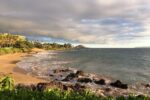Launching the Department of ʻŌiwi Resources
By Keani Rawlins-Fernandez
Last year, the electorate voted to approve the Charter Commission’s proposed amendment to establish the Department of ʻŌiwi Resources by July 1, 2024, and to reaffirm the county as a bilingual government.
The Maui County Charter commits the county to being “mindful of our Hawaiian history, heritage and culture” and “fulfilling the philosophy decreed by the Hawaiʻi state motto, ‘Ua mau ke ea o ka ʻāina i ka pono.’” As Charter Commission Vice-Chair Keoni Kuoha and attorney U‘ilani Tanigawa Lum have explained, “These substantial commitments by the county require specialized knowledge and skills to guide decision-making and ensure pono management is pono.”
Kuoha and kumu hula Cody Pueo Pata wrote last year in advocating for the Charter amendment: “Ōiwi resources provision Hawaiian cultural practices and worldview. As tangible and intangible resources, Hawaiian culture does not exist without them.”
Shifts in land and resource management that came post-contact—especially after the illegal overthrow—have led to drastic changes that have destroyed the richness cultivated by the indigenous people for millennia. This destruction includes our food security, cultural practices, medical practices and land-management systems.
It is through systems that we must shift back to one that promotes abundance.
To start, the county will promulgate supporting legislation and begin searching for a director of this new department. As governed by the charter, the director of the Department of ʻŌiwi Resources must be experienced in Hawaiian cultural-resource management and cultural practices and proficient in ʻōlelo Hawaiʻi.
Everyone’s contribution to shaping this department is essential and encouraged. We can’t overstate the importance of this department and the potential effects it will have in keeping Hawaiʻi, Hawaiʻi.
For over 130 years, our lands, waters and people have been exploited by corporations that put their bottom line above the health and well-being of Maui Nui’s precious resources and people.
As we prepare to launch this department, it is critical to understand the historical context that makes this department necessary and timely. In my Efficiency Solutions and Circular Systems Committee, we are laying the foundation by looking at systemic inequality.
Our educational presentations explain how systems were designed to overthrow the Hawaiian Kingdom, control government and dispossess kānaka from ‘āina and wai to enrich foreigners.
In March, our series started with University of Hawaiʻi Maui College Professor Kumu Kaleikoa Kaʻeo, who gave an overview of Hawaiian history and placed it in the context of imperialism, colonialism and racism. He discussed how those in power use the idea of race as justification for land theft by dehumanizing native populations.
Next, Professor Kēhaulani Kauanui of Wesleyan University helped us understand that settler colonialism is a structure and not an event. It is designed to “destroy and replace” the native through land theft and forced assimilation, which pressures the native to identify with the oppressor.
In June, Professor Candace Fujikane from the University of Hawaiʻi at Mānoa explained Asian settler colonialism and how people who aren’t genealogically connected to Hawaiʻi can be allies to kānaka maoli and how to understand their kuleana.
Our most recent presentation was given by UH Maui College Vice-Chancellor Kahele Dukelow, UH Mānoa’s Nālani Balutski and Dr. Willy Kauai. They reminded us that Hawaiians had one of the highest literacy rates in the world during the 1800s.
After the illegal overthrow and the implementation of the assimilation campaign by the United States, the literacy rate and many other measures of well-being for kānaka maoli fell sharply.
The extensive work of these educators must be used in legislative policy and taught in our communities. The Department of ʻŌiwi Resources will be a vessel for more equitable legislation that can restore ea to our people, land, water and ecosystems.
My team will start a series of talk story sessions in our communities where we can have meaningful discussions about systemic inequality and the issues discussed in committee meetings.
One of the most powerful tools for healing is exposing the truth of a history that was intentionally hidden and rewritten. While often difficult and painful, it sets the foundation for moving forward in a way that will ensure equity and accountability.
To watch the presentations and access other resources, please visit https://www.mauicounty.us/rawlins-fernandez/.
*Keani Rawlins-Fernandez is the chair of the Efficiency Solutions and Circular Systems Committee. She holds the County Council seat for the Molokai residency area. “Council’s 3 Minutes” is a column to explain the latest news on county legislative and community matters. Go to mauicounty.us for more information.





